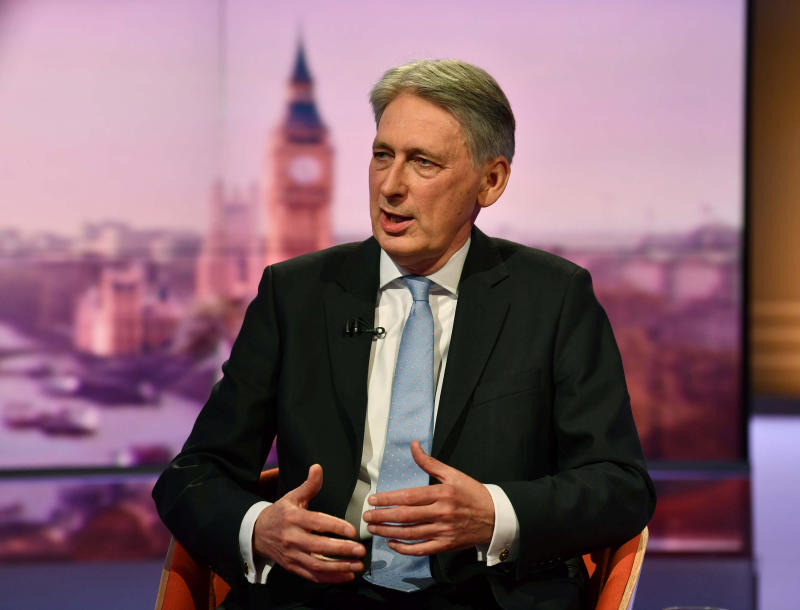British Finance Minister Hammond says election may not solve Brexit deadlock
Sign up now: Get ST's newsletters delivered to your inbox

British finance minister Philip Hammond warned those in his party that a no-deal Brexit would threaten the United Kingdom's cohesion.
PHOTO: REUTERS
LONDON (REUTERS) - A national election may not resolve Britain's Brexit impasse, Finance Minister Philip Hammond said on Thursday (May 30), adding that he wanted Parliament to be able to resolve the issue itself under a successor to Prime Minister Theresa May.
"I am not sure that a general election can resolve the question for the simple reason that both the main political parties are divided on the issue," Mr Hammond told BBC radio. "This is a division that runs not between the parties but within the parties."
Mr Hammond earlier warned those in his party vying for Mrs May's job that a no-deal Brexit would threaten the United Kingdom's cohesion and that they should tone down irresponsible spending pledges.
Mrs May's departure deepens the Brexit crisis as a new leader, who should be in place by the end of July, is likely to want a more decisive split, raising the chances of a confrontation with the European Union and potentially a snap parliamentary election.
Mr Boris Johnson, the bookmakers' favourite to get Mrs May's job, has said the UK should leave the EU on Oct 31 with or without a deal.
"We need to get the spectre of a no-deal exit off the table," Mr Hammond told the BBC. "Leaving with no deal would be a very bad outcome for the economy."
"I'm not sure that people necessarily have understood what a risk we would be taking, not only with our economy but also with the future of our precious United Kingdom if we left with no deal," Mr Hammond said.
The UK was supposed to have left the EU on March 29 but its politicians are still arguing over how, when or even whether the country will leave the club it joined in 1973.
No-deal means there would be no transition so the exit would be abrupt. Bank of England Governor Mark Carney said leaving the EU with no transition could be akin to the 1970s oil shock.
Mrs May's government has repeatedly warned of the disruption a no-deal Brexit would unleash on everything from pet tourism to the import of crucial medicines and supply chains that criss-cross Europe and beyond.
Brexit supporters admit there may be some short-term disruption but that in the long-term the UK would thrive outside what they cast as an undemocratic and excessively bureaucratic project dominated by Germany.
When asked if he could be a candidate to succeed Mrs May, Mr Hammond did not answer directly, but veered into a discussion about the national minimum wage. He said he was meeting other candidates.
"My concern is to make sure that there is a voice in this competition representing the views that I hold: That we need to resolve the Brexit impasse in a way that protects our businesses and our jobs," he said.
He did not say which candidate he would back.
"I hope this contest does not degenerate into a competition to see who can make the biggest spending or tax cutting pledges," he said. "The Conservative Party has a very strong reputation, well deserved, for being fiscally responsible."
Mr Hammond said that if a future government that was seeking to leave without a deal faced a confidence vote in the House of Commons, he would vote in what he felt was the national interest.
"I've been in Parliament for 22 years and I have never once voted against the Conservative whip, so it's not something I would do lightly or enthusiastically. But I am very clear that the national interest trumps the party interest," Mr Hammond told Sky News.
"If I am presented with a difficult choice, I will act in what I believe is the best interest of this country."


